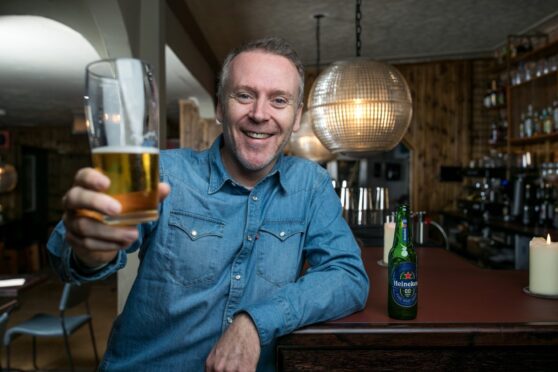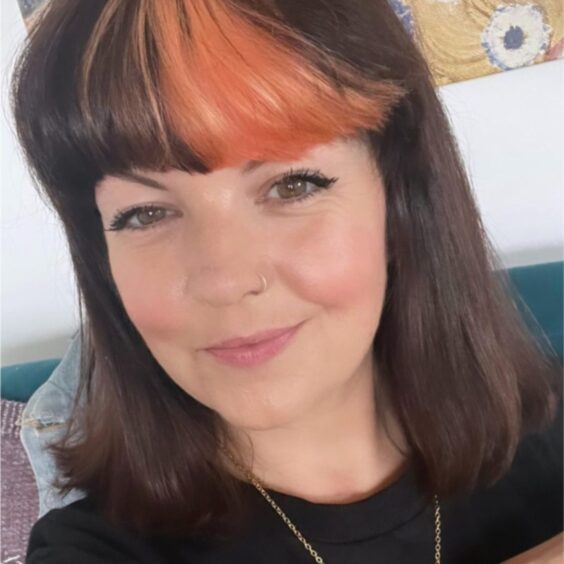
Today is day 1,830 in my life without alcohol.
I didn’t mean to stop drinking. I only paused to give a course of antibiotics a better chance of helping me shake off a chest infection.
Yet, on Wednesday last week, I opened a tin of Guinness 0.0 and acknowledged that this five-year milestone was now a way of life.
The beer I popped at 11pm on January 3, 2019, after an afternoon and evening of slow boozing at my sister’s New Year party, was as significant as the first bottle my dad bought me as a teenager on holiday in 1992.
It was my last.
Perhaps, more accurately, it was my last containing any perceptible concentration of alcohol.
Alcohol-free alternatives
In the five years since I switched to zeros, as they’re now known in bars and restaurants whose staff previously shrugged their shoulders when I asked if they’d “any alcohol-free beers”, the market has surged. People who drink alcohol-free alternatives are no longer outliers. Advertising hoarding at football matches punt mainstream 0% beer alternatives to crowds of 60,000 and worldwide TV audiences.
The alcohol-free market now commands huge mainstream advertising budgets.
The Portman Group recently reported almost half of 18 to 24-year-olds opt for an alco-free alternative, and social media is flooded with self-styled influencers purporting transformative effects of quitting booze.
While I’m in no doubt that life lived without hangovers and 2am taxi queues is better (and considerably lower on calories, if that’s your thing), here’s my truth. Quitting alcohol isn’t the clear-sky panacea many of these folk claim. I’ve been hospitalised more since than before, but that torn knee cartilage and those kidney stones were coming for me regardless.
And being the guy with the car at the end of the night can lead to unexpected tours on the way home.
Life is still challenging. The pandemic was a stern test. I drank more beer in that time than ever, just without alcohol. Whatever science says, I can vouch for the placebo effect of those first two drinks.
I even convinced my dad, Jack – a man who ran a bar for 30 years and enjoyed his whisky – to switch to zeros. In the last 18 months of his life, he’d overcome his scepticism to become an advocate of Guinness 0.0.
His death 12 months ago was the toughest time of my life. But among the things I’ve learned since then was that those high seas are better navigated without drink, because the emotional toll of grief is bad enough without a hangover.
Others’ responses have also been a revelation.
Since first breaking cover after a year of being “affit”, I’ve regularly heard from others who’ve done the same.
For some, though, the choice still seems a curiosity.
Switching the buzz
I drink beer everywhere I did before – at gigs, in the pub, out for dinner or after the football. I still go to parties, work events and nights out.
I’ve switched the buzz of keeping the night going for the buzz of knowing I can drive home when folk start gibbering.
I know I’m lucky. I’ve seen what alcoholism does to lives.
The drink didn’t have that hold on me, and I’ve been careful ever since I switched not to suggest beating addiction is as simple as choosing a Heineken zero.
But, after five years of life without booze, I know myself better, I’m drinking more beer than before and I’ve not had a hangover since the last decade.
Cheers to all that.
‘There’s no stigma in stopping drinking’
Kirsty Mulcahy, who runs Sober Buzz Scotland, was “a high functioning alcoholic” before quitting and setting up her social enterprise and sober events organisation.
With funding she hopes to become the go-to place “for people who want to make positive change” around their drinking habits.
“We’re moving away from talking about alcoholism to talking about ‘alcohol usage disorder’,” she says. “It includes that group of people who say they’re not going to drink this week, and before they know it they’ve had a drink five nights. There’s not a lot of support for these people.
“I’m trying to let people see there’s no stigma to realising they don’t know how they got to this point, and no stigma around stopping.”
Michael Sargood, who runs Sober Socials online community has seen a surge in interest, especially after the festive period. He points to alcohol-free raves and comedy nights held in Glasgow by FreedUp, but says there’s a way to go.
He said: “One in five adults don’t drink and one in three pub visits are alcohol-free events. Non-drinkers are much more poorly catered for than the one in 20 who are vegan.”
Niall Kennedy, who runs the Wee Beer Shop in Glasgow’s Govanhill, has noticed a major change in product lines.
“What’s particularly exciting is that Scottish producers are leading the way. Jump Ship in Edinburgh are opening a new brewery, and Brulo and Portobello’s Vault City are at the front of the charge to improve drinkers’ choices.”
Jamie Wild, co-founder of Fife-based alcohol-free craft spirit, Feragaia, opened a distillery in Glenrothes in 2022.
He said: “It’s about establishing respect for alcohol-free drinks, and levelling the culture between alcohol and alcohol free. It’s about making it an easy choice. It’s not about saying alcohol is bad, it’s about providing an alternative.”

Enjoy the convenience of having The Sunday Post delivered as a digital ePaper straight to your smartphone, tablet or computer.
Subscribe for only £5.49 a month and enjoy all the benefits of the printed paper as a digital replica.
Subscribe